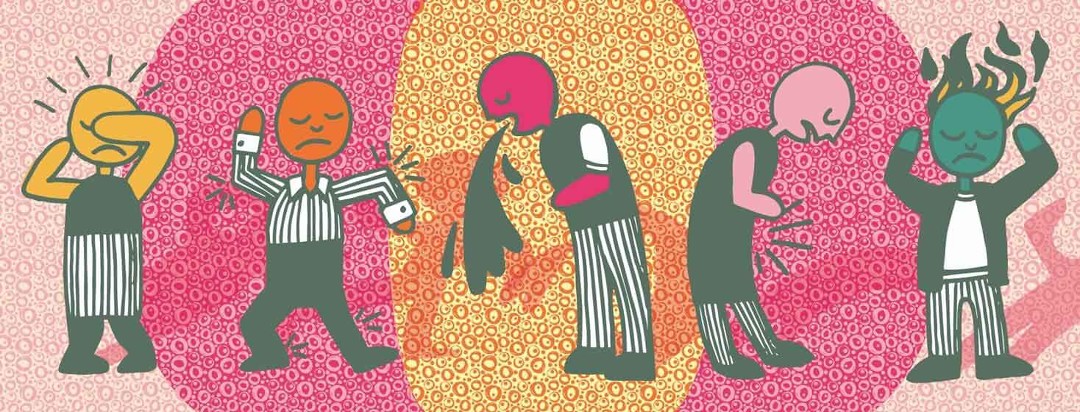HIV Symptoms
Reviewed by: HU Medical Review Board | Last reviewed: June 2024 | Last updated: June 2024
Human immunodeficiency virus (HIV) is a virus that infects the immune system. It attacks specific immune cells called CD4 cells. Without these cells, the body cannot fight off infection. Symptoms of HIV can be confusing because they are nonspecific. This means they may look like other diseases and conditions.1,2
Without treatment, HIV will continue to advance. There are 3 stages of HIV infection:1,2
- Acute infection
- Chronic infection
- Acquired immunodeficiency syndrome (AIDS)
AIDS, the final stage of HIV infection, develops when HIV kills a significant amount of CD4 cells. As HIV progresses, different symptoms and diseases can develop.1,2
Acute HIV infection
Acute infection is the earliest stage of HIV. It usually develops within 2 to 4 weeks after you are exposed to HIV. In this stage, the virus makes copies of itself (replicates) very quickly. The copies then quickly spread through the body, looking for CD4 cells to infect.2
The acute stage of HIV infection often looks like the flu. Symptoms can last as little as 2 to 4 weeks and can include:1
- Fever or chills
- Rash
- Night sweats
- Muscle aches
- Sore throat
- Extreme tiredness (fatigue)
- Swollen lymph nodes
- Mouth ulcers
During the acute stage, the blood contains very high levels of the virus. The likelihood of infecting someone else with HIV is very high during this stage. This is especially concerning because people who have been recently infected are highly contagious but may not have any symptoms.2,3
Chronic HIV infection
The next stage is chronic infection. You may also hear this stage called “asymptomatic HIV infection” or the “clinical latency stage.” During this stage, the HIV virus is still making copies of itself but slowly. Because there are fewer copies of the virus to infect the immune cells, you may not experience any symptoms at all.3
Most people living with chronic HIV infection do not have symptoms unless they do not get treatment and thus develop AIDS. But some people experience general fatigue. They also might experience lymph node swelling in different parts of their body, called generalized lymphadenopathy. They may also experience higher rates of depression and anxiety.4
People with HIV may live in the chronic infection stage for years. Without treatment, people living with chronic HIV will most likely advance to AIDS within 10 years. With treatment, people with HIV can reach very low virus levels. They can maintain their health for much longer. Proper HIV treatment also can almost completely prevent the possibility of transmitting HIV.2
AIDS
AIDS is the final stage of HIV. This stage occurs when there are few to no immune cells left. Specifically, people with a CD4 cell count of less than 200 have reached this stage.2
Those living with AIDS develop “opportunistic infections.” Because there are so few immune cells, the body cannot fight off any sort of infection. Bacteria and viruses then have the “opportunity” to grow and replicate in the body. Common opportunistic infections include:2
- Pneumocystis pneumonia
- Kaposi sarcoma
- Coccidioidomycosis
Some of these opportunistic infections are considered AIDS-defining conditions. Developing one of these conditions is a sign that you have developed AIDS. This is because people with healthy immune systems typically do not develop them. In the United States, these infections have become less common as HIV treatment has progressed.2
People living with HIV/AIDS are also more likely to develop other infections and diseases. These include:2
- Cervical cancer related to human papillomavirus (HPV)
- Tuberculosis (TB)
- Sexually transmitted diseases (STDs), also known as sexually transmitted infections (STIs)
AIDS is life-threatening. On average, people living with AIDS who are not receiving treatment will survive for only around 3 years.2
You cannot rely on symptoms alone to tell you if you have HIV. The only way to know is to get tested. If you have never been tested, think you have been exposed to HIV, or are concerned that you may have symptoms of HIV, talk to your doctor.5
